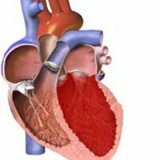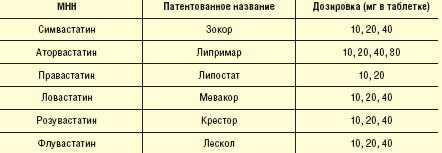Myocarditis: symptoms and treatment

Myocarditis is an inflammatory process that affects the heart muscle. Every year, several thousand people become ill with this disease, and without knowing this fact nothing, since often there are no symptoms of myocarditis.
There are several types of myocarditis:
- infectious;
- rheumatic;
- is allergic;
- idiopathic( ie, having not fully clarify the nature of the disease;.
- myocarditis arising from diffuse connective tissue diseases, burns, injuries, exposure to ionizing radiation
Causes of myocarditis
One of the most common causes of myocarditis is a viral infection in the course of struggle. With an infection that occurs, the body often forms cells that can later become major producers of chemicals that contribute to damage. Theological heart muscle Consequently, there is a significant increase in the size of the heart and fainting However, if diagnosed in time and explore symptoms and treatment, then it will have a positive result With regard to the most common causative agents of myocarditis, they are as follows:..
- Cytomegalovirus
- herpes virus
- Viruses Korsakov
- chlamydia( sexually transmissible virus)
- Mycoplasma( bacteria induce the occurrence of pulmonary infections)
- Staphylococci
- Streptococci
- treponemesma
- HIV Hepatitis C
The remaining causes of myocarditis may include chemicals that have a direct toxic effect on the heart muscle is: insect bites, allergic attacks from medications, alcohol, lead, narcotic drugs, sessions of chemotherapy and radiotherapy.
Symptoms and Treatment Myocarditis myocarditis
dangerous, above all, the fact that most cases are completely without symptoms and therefore, people often suffer it "on their feet" and even recover, and not knowing what to have this kind of disease. As for the symptoms, which are still present, it is above all:
- due to physical stress occurs shallow breathing, which in the future may occur even at rest or lying down;
- a strong palpitation at times with occurrence of syncope;
- frequent dizziness, accompanied by a darkening in the eyes;
- the presence of very severe pain in the chest, a sense of contraction and foreign pressure, smoothly transmitted to the shoulders and neck;
- state of complete shattering and severe fatigue;
- can be accompanied by symptoms similar to those of infectious diseases, ie, muscle pain, headache, fever, sore throat, diarrhea, up to a slight increase in temperature..;
- multiple edema of the joints, legs accompanied by pain and swelling of the veins;
- significant decrease in the amount of daily urine;
To fully confirm the disease of myocarditis: symptoms and treatment, it is necessary to assign such studies as a blood test, both for the presence of infections, and for the presence of antibodies to determine the complete cellular composition of the blood. Further carrying out of a roentgenography of lungs, heart and organs of a thorax. The mandatory passage of an electrocardiogram, ultrasound of the heart, and sometimes with lubricated symptoms, it is recommended that an MRI or a heart muscle biopsy be performed.
Treatment of myocarditis requires a rapid and effective, in order to avoid the occurrence of all sorts of complications.
First of all, after the doctors confirm this diagnosis, all efforts should be directed to reducing the burden on the heart and preventing complications. The complex treatment of myocarditis includes drugs that help reduce the burden on the heart, and therefore improve its work. It can be and inhibitors of ATP, diuretics and drugs blocking calcium channels. In such cases, the doctor recommends constant rest and decreased activity of the patient for a period of six months or more, as well as an obligatory diet with a low salt content, in order to avoid the process of accumulation of fluid in the body.
If myocarditis has already complicated form and is accompanied by pronounced disorders in the work of the heart and the possibility of thromboembolism, the patient must be examined in a hospital without fail. This is due to the occurrence of other serious complications, such as: heart rhythm disorders requiring the use of special drugs or even the use of a pacemaker or surgery with the installation of a cardioverter-defibrillator.
Do not forget that conscious refusal of treatment can have irreparable consequences. After all, even the process of recovery depends on many factors, such as general health, the state of immunity, the presence of all sorts of complications. If the request is made on time, then the recovery will be gradual, but complete. Well, if a person is delayed with a referral to a doctor and the provision of professional assistance, then recovery can result in a transition to the status of a chronic disease, which in turn requires constant medical supervision and the use of special drugs.
Remember that untreated myocarditis is dangerous because at the same time there can be such serious diseases as heart failure, in which the heart does not have a normal ability to provide the need of the whole organism. It can also be a disease: cardiomyopathy, characterized by the process of cardiac muscle weakness and structural changes in the myocardium and pericarditis, as a process of inflammation of the cardiac sac.
Based on the above, it can be concluded that timely diagnosis, accurate diagnosis and the necessary treatment will save the patient from severe consequences and exclude the need for surgical intervention. Listen to yourself and your health and promptly contact the help of the right specialists in order to avoid the occurrence of myocarditis and its consequences.



